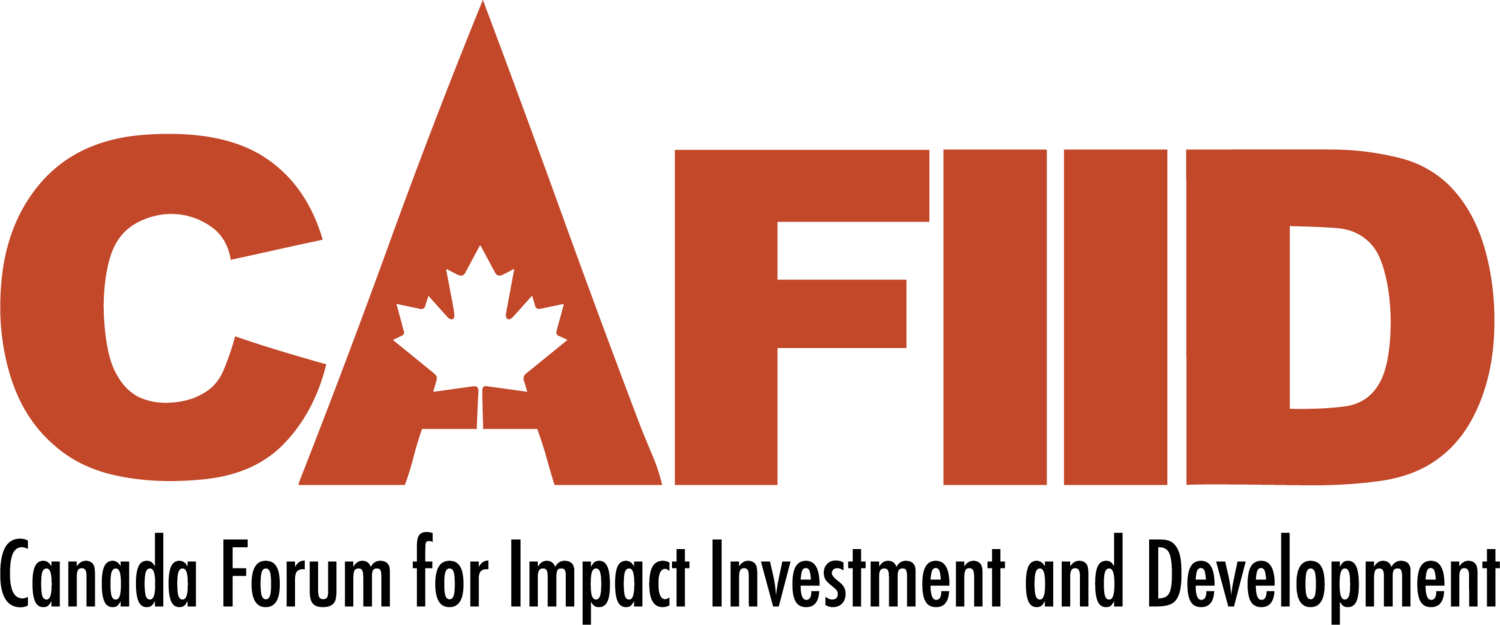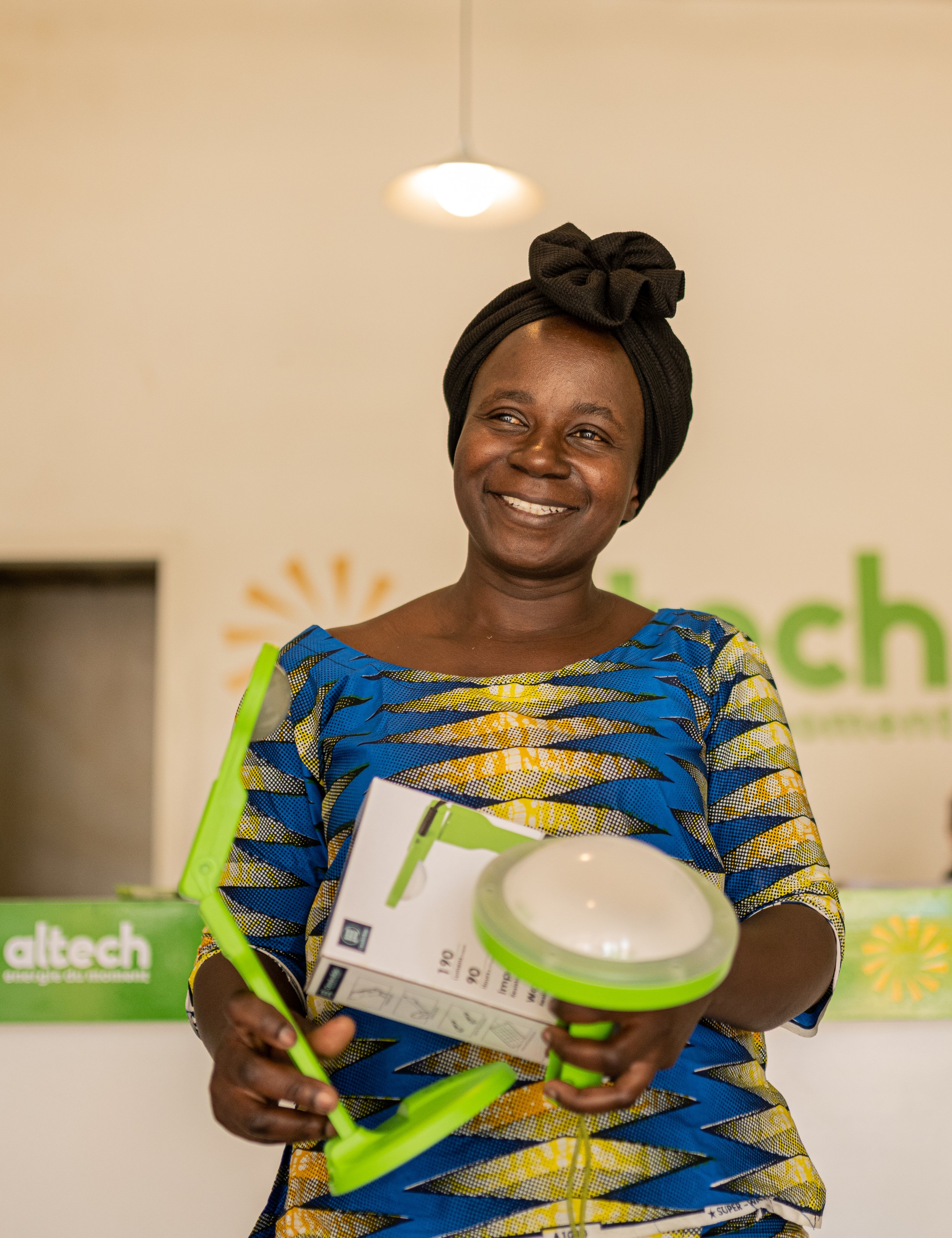FinDev Canada: Advancing Gender Equality through the Energy Entrepreneurs Growth Fund (EEGF)
FinDev Canada is Canada’s bilateral development finance institution (DFI) that supports development through the private sector in Latin America, the Caribbean, Sub-Saharan Africa and the Indo-Pacific region to contribute to sustainable and inclusive growth aligned with the United Nations’ Sustainable Development Goals (SDGs) and the commitments of the Paris Agreement. It provides financing, investment, blended finance solutions, as well as technical assistance (TA) and knowledge, to advance climate action, women’s economic empowerment (WEE), and local market development through sustainable infrastructure, agribusiness, forestry and their value chains and the financial industry. Headquartered in Montreal, FinDev Canada is a Crown Corporation and a subsidiary of Export Development Canada.
Energy Entrepreneurs Growth Fund
The Energy Entrepreneurs Growth Fund (EEGF) is an innovative investment fund offering catalytic financing and TA to early and growth-stage companies that increase access to clean, safe, dependable, and affordable energy for off-grid households and businesses in Sub-Saharan Africa (SSA). EEGF was created in 2019 by Shell Foundation, co-funded by the government of the United Kingdom, as well as FMO, the Dutch Entrepreneurial Development Bank. It is managed by Triple Jump, a Dutch impact investment manager focusing on emerging markets, and advised by Persistent Energy Capital, a leading venture builder in the energy access sector operating in Africa since 2012.
Approximately 600 million people in SSA, or 55% of the continent’s population, lack access to electricity. This number is poised to grow if current population growth and urbanization trends are maintained[i]. Women are particularly affected, and research shows that expanded energy access improves different facets of women’s empowerment and gender equality. Enhanced lighting in households has outsized benefits for women, allowing for greater gains in productivity compared to men[ii]. Incidence of gender-based violence and harassment (GBVH) decreases with improved access to lighting in households and communities, given that poor lighting indoors and outdoors is a risk factor increasing the potential for GBVH, disproportionately affecting women and girls[iii]. Finally, expanded access to electricity contributes to reductions in time poverty, which disproportionately burdens women and girls who are oftentimes responsible for the management of household energy sources[iv].
Through its investments, EEGF addresses the energy needs of African women consumers and women business owners. By obtaining financing from FinDev Canada in 2021, EEGF has committed to having at least half of its portfolio companies align with 2X Challenge criteria[v] by either intentionally addressing the energy needs of African women consumers and entrepreneurs through relevant products or services (e.g., solar home system appliances), or by promoting women as owners, leaders, or employees of companies. Importantly, one of the pillars of EEGF’s gender lens investment strategy is to support portfolio companies through its TA facility to promote inclusive human resources and other practices, contributing to WEE. In terms of development outcomes, over its 12-year lifetime the Fund expects to:
Support companies that will provide jobs and economic opportunities for women and supply one million additional light-hours for women in households;
Contribute to an additional income of USD 670M for businesses and households who undertake additional economic activity due to expanded access to electricity thanks to EEGF portfolio companies.
Provide 8.455 MW of additional clean energy through its portfolio companies to approximately 5.4 million beneficiaries, helping to avoid 4.5 MtCO2e GHG emissions.
Following FinDev Canada’s investment into EEGF, US Development Finance Corporation (DFC), Nordic Development Fund (NDF) and Austrian DFI OeEB have followed suit with investments, resulting in a total fund size of US$111.9M. As of June 2023, EEGF had ten portfolio companies providing services and products ranging from productive uses of energy to pay-as-you-go (PAYGo) solar power for businesses.
Results and Challenges
At the end of 2022, the Fund showed notable progress on meeting its impact targets:
The Fund reported an over threefold increase in the GHG emissions avoided in 2022 compared to 2021, with 18,677 kW in renewable energy produced. This clean energy access has benefited 1,369,370 people, mostly poor and rural off-grid communities.
100% of EEGF portfolio companies showed evidence of advancing WEE, i.e., by meeting 2X “Leadership”, “Entrepreneurship”, “Employment”, and/or “Consumption” criteria under the 2X Challenge[vi].
EEGF has doubled its exposure to low-income countries, with the majority of its investees operating in markets designated as Least Developed Countries (LDCs) in SSA.
As an employer, women make up 50% of EEGF’s workforce and 40% of its Investment Committee. The Fund also continues to uphold high gender equality standards through its Diversity Equity and Inclusion Policy and active involvement of a Diversity Equity and Inclusion Committee, as well as gender pay analysis and transparent remuneration and performance management processes.
Lessons Learned
EEGF is FinDev Canada’s first investment under its blended finance facility 2X Canada: Inclusive Economic Recovery, funded by the Government of Canada through Global Affairs Canada. This transaction, sealed at the end of 2021, is projected to generate important learnings on development impact, including through the research study commissioned by EEGF in 2022 and financed by the 2X Canada TA facility. Going beyond mere tracking of impact metrics (such as the number of women benefiting from the work of its portfolio companies), EEGF is conducting strategic research on the true extent of economic benefits women receive from solar products and the barriers they still face, which will in turn help drive the business case for providers to meet the unique needs of their women customers. Furthermore, EEGF would like to better understand and receive recommendations and proposed interventions on increasing women participation and representation at the investee level, so as to have a holistic approach towards achieving gender equality in its activities.
References:
[i] IEA. SDG7: Data and Projections. 2020. https://www.iea.org/reports/sdg7-data-and-projections
[ii] Blackden, C. Mark; Wodon, Quentin. 2006. Gender, Time Use, and Poverty in Sub-Saharan Africa. World Bank Working Paper No. 73. Washington, DC: World Bank. © World Bank.
[iii] Clark L. “Powering households and empowering women: The gendered effects of electrification in Sub-Saharan Africa”. Journal of Public & International Affairs. 2021. https://jpia.princeton.edu/news/powering-households-and-empowering-women-gendered-effects-electrification-sub-saharan-africa
[iv] Rewald, Rebecca, Energy and Women and Girls: Analyzing the Needs, Uses, and Impacts of Energy on Women and Girls in the Developing World, Oxfam Research Backgrounder series (2017)
[vi] The latest annual impact data of EEGF on a portfolio level showed that the fund investees may be eligible under at least one of 2X Criteria, such as: “Leadership“ (on the basis of meeting or surpassing the minimum thresholds on women‘s representation in senior company management), ”Entrepreneurship” (i.e., a business founded by a woman), “Employment” (i.e., a high share of women employees, with evidence of quality employment at a company level), and ”Consumption” (e.g., products or services that specifically and disproportionately benefit women).
For more information, contact:
Eugénie Viatchaninova, Sr Gender Advisor, FinDev Canada, eviatchaninova@findevcanada.ca
Dahlia Nacef, Impact Officer, FinDev Canada, dnacef@findevcanada.ca
Kia Muukkonen, ESG & Impact Associate, EEGF, k.muukkonen@triplejump.eu
September, 2023
This publication is made possible by the Government of Canada's Investment Readiness Program and CAFIID’s Gender Lens Investing Community of Practice








